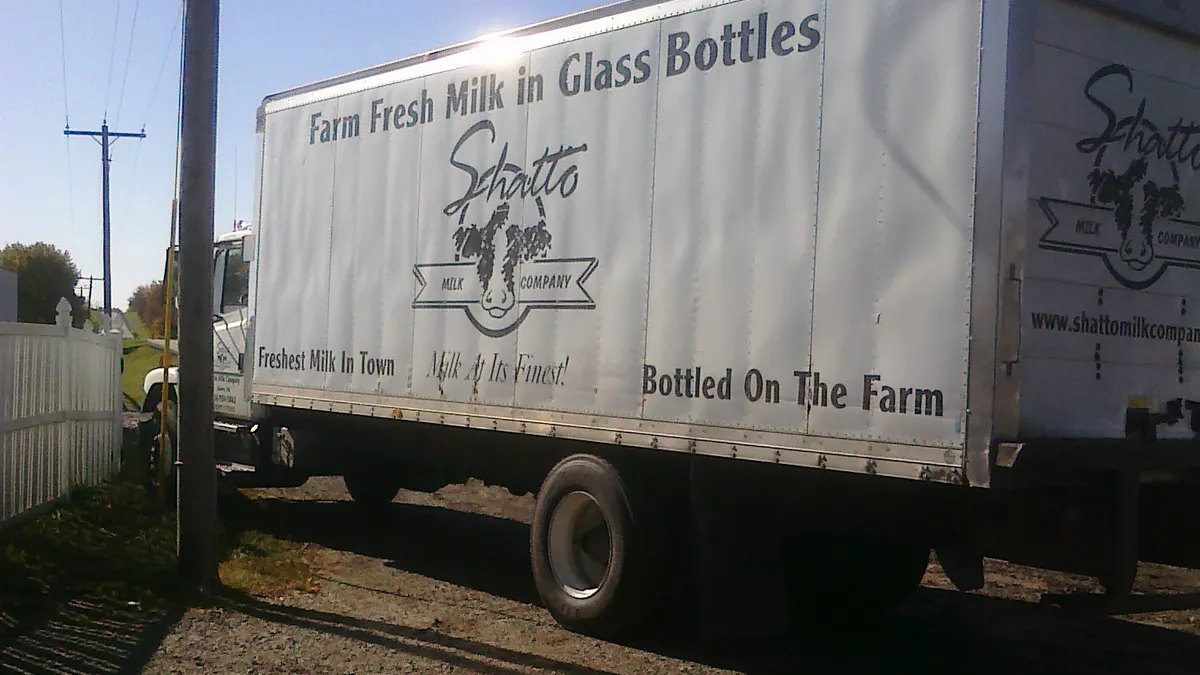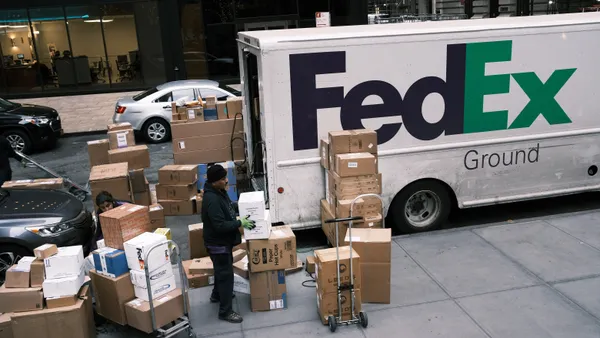PHILADELPHIA — Lisa Stearns, owner of Mountain Dairy, recounted an example of last-mile logistics gone spoiled at the Home Delivery World conference in Philadelphia Thursday.
A customer came home to find the butter they ordered had been already been consumed — by a raccoon.
The customer didn't have a porch box, which is what Mountain Dairy uses to drop off orders of its products. The boxes keep goods temperature controlled and protected from the elements or hungry creatures.
For shippers of perishable items, the last mile is only part of the battle. The last few feet are just as critical for home deliveries of food products or other perishables, and it means shippers in these industries have to innovate to make the final leg of their supply chain work.
Big-box retailers have tried tactics such as delivering into the trunk of a car, inside a house or even into the refrigerator, though consumers have been reluctant to buy in.
Mountain Dairy and Shatto Milk Company, a dairy farm based outside Kansas City, found the porch box was a solution that worked for them. The boxes, manufactured by McShane Welding and Metal Products, kept the products safe but weren't intrusive into customer homes.
Mountain Dairy initially shared in the costs of the boxes, because it wasn't sure if consumers would be willing to pay upwards of $50 for the box. The added cost was worth it to offset damaged deliveries (by raccoon or other method) that the dairy would have to redeliver.
As a bonus, the companies' branding on the box provided marketing for neighbors walking or driving by. And it made deliveries more seamless, according to Matt Shatto, owner of Shatto Milk Company.
"When you drive along the street, looking for the next delivery, they can identify pretty easily what they need to be looking for because there's our box on the front porch," Shatto told Home Delivery World attendees.
By consumers owning the box, it also instilled a sense of brand loyalty.
"We got repeat buys from customers that otherwise may not have thought of that, because of the box," Shatto said.
The last mile as a whole is notorious for being resource intensive, and standing it up can be challenging for small, family-owned businesses like Mountain Dairy and Shatto Milk Company.
"Over the course of the past year and a half, we've put a lot of effort into catching up with demand," Shatto said, noting that the company had to beef up capital assets to meet home delivery demand.
Outsourcing or using a third-party service is an option and allows a company to scale up and down based on demand. But it can create a fragmented logistics model, as grocer Lowes Foods discovered. It's bringing the delivery business under its own branding, after using providers such as Shipt and Doordash. A technology from Delivery Solutions organizes deliveries across multiple last-mile firms.
For Mountain Dairy, executing in the last mile was part of the fabric of the company.
"We actually started delivery in 1870," Stearns said. But the dairy shuttered its home delivery service in 2012, as it focused more on distribution to universities and restaurants.
When the pandemic hit, foodservice revenue streams ran dry, and consumers wanted local food products delivered to their doorsteps.
"Literally in five minutes, [we] put pen to paper and started the delivery service again," Stearns said.
Making an investment in home delivery service requires business to forecast out and consider whether the service will still be in demand in several years. For online grocery at least, most forecasts suggest demand will stay on a growth path. A 2020 survey from Mercatus and research firm Incisiv projected e-commerce would make up nearly 22% of grocery sales in 2025, up from 10% in 2020.
"People like the convenience of it. You get your staples, you get your milk, your butter, your eggs," Stearns said. "I'm confident that's going to keep going."














